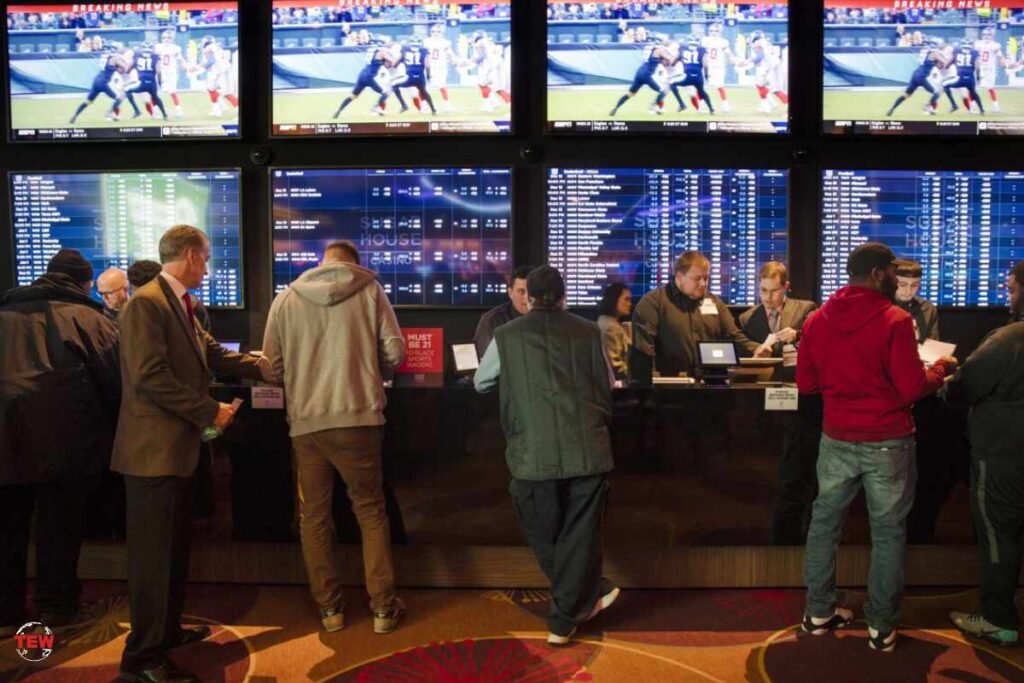California is home to one of the biggest sports-loving communities in the world. As a state, it has more professional sports clubs than any other, all playing in the big globally spectated leagues. Sports are being spectated in person more and more in California, even the NFL, where tickets have risen in value to over three times more than the ticket for an English Premier League match. This article is all about to know sports betting in California.
Visiting and watching these games tends to tempt sports lovers to indulge in a little sports betting, which is yet to be legalized and regulated across the state. So what events should we expect to see in the coming year with regard to the CA sports betting industry?
Voters in California knocked down two initiatives to legalize sports betting, as had been widely anticipated for many months. In spite of the fact that both Proposition 26 and Proposition 27 were defeated at the polls, this does not imply that betting on athletic events will be outlawed in the state indefinitely; this only applies to the foreseeable future.
In the same vein, the politics surrounding the issue considerably reduce the likelihood that such a shift will be brought about in the very near future. There is hardly a single route that gaming expansion advocates could follow that would not be laden with difficulties. For the time being, punters are sticking to offshore websites until the state of online betting in California changes to a well-regulated market.
California Sports Wagering
When it comes to the question of whether or not sports betting should be legalized in California, the situation as it stands reveals that a number of the most powerful interests in the state when it to gambling have an attitude of “our way or the highway.” These interests are represented by a number of tribal gaming authorities that operate casinos inside the limits of the state of California.
As the conference chair for the Indian Gaming Association, Victor Rocha, said a month ago, the problem at hand for the majority of tribal casino operators in relation to sports betting isn’t really sports betting. The question that has to be answered is how that occurs if it does so at all.
Some tribal casino owners would prefer that gambling on sports never become legal in the state of California at any level at all rather than risk losing complete control over the industry. In and of itself, the money generated through sports betting is not even close to being significant. They are concerned that the legalization of commercial sports betting may result in non-tribal members playing in internet casinos, which will result in a large loss of potential income from that vertical.
Even while tribal casino lobbyists have a significant amount of clout in the state legislature and among the state’s electorate, their influence is not unchecked. The tension that exists between the state’s many interest groups is still there, and it may stymie future efforts to allow sports betting in California.

The Path Outlined By The State’s Constitution In California
There are only a few different ways that gambling may become legally permitted in the state of California. These items are:
- Introducing a new provision into the state’s constitution by way of a vote of the people
- Changing the terms of gambling agreements between the state & tribal authority
As was seen after recent events, it is difficult to get the support of a majority of voters for a ballot item pertaining to online betting in California. It is possible that a coalition of internet gambling corporations, tribal gaming authorities, and other gambling organizations in the state might be successful in gathering the required number of votes.
Nevertheless, in light of the arguments that have been shown so far, it seems that the formation of such a coalition is now very unlikely. There are a variety of points of view about topics such as revenue sharing that exist between firms that provide online gaming and tribal authorities.
In addition, there has been a long-standing rivalry between the operators of card rooms and the tribal casinos in the state of California. There have been many attempts made in the past by operators of tribal casinos to severely restrict card rooms. Even on the topic of betting on sports, reaching a consensus can turn out to be an impossible mountain to climb.
However, even extending tribal gambling to incorporate sports betting has its own unique set of difficulties.
Challenges Posed By The Law To The Spread Of Compact Gambling
It may seem to be a workable solution to provide interested tribal officials with the control over sports betting that they want, but the situation is not quite so straightforward. There will always be a third party involved in any gaming compacts between California & indigenous tribes, and that party is the federal government.
The approval of any and all gaming compacts is left up to the discretion of the United States Department of the Interior. Because of this, they are subject to federal legislation. The understanding of the Indian Gaming Rights Act that is in place at this time makes it impossible for the tribal governments to provide gaming outside of their own sovereign regions.
Therefore, modifications to the compact might only make gambling on sports legal in certain regions of California. Another alternative would be for California to forgo the compact procedure and instead enter into commercial agreements about sports betting with tribal casinos.
However, in order to do that, we would need the approval of the legislature of the state. This introduces an element of uncertainty into the scenario, at the very least. In addition, it is unclear how much support the state would have from the many different tribal authorities. The operators of tribal casinos do not form a single entity and are, in many respects, in competition with one another.
Given all of these factors, the likelihood of the state of California eventually passing legislation to legalize sports betting is concerning. Although it’s possible that the allure of online gambling is too great for businesses who provide it to just quit, such businesses are up against enormous challenges that have, up until now, been impossible to overcome.




